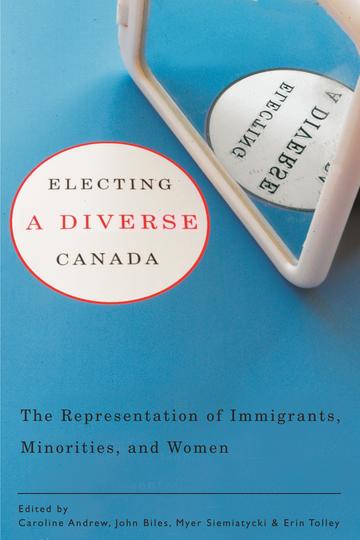About BC Books Online
BC Books Online was created for anyone interested in BC-published books, and with librarians especially in mind. We'd like to make it easy for library staff to learn about books from BC publishers - both new releases and backlist titles - so you can inform your patrons and keep your collections up to date.
Our site features print books and ebooks - both new releases and backlist titles - all of which are available to order through regular trade channels. Browse our subject categories to find books of interest or create and export lists by category to cross-reference with your library's current collection.
A quick tip: When reviewing the "Browse by Category" listings, please note that these are based on standardized BISAC Subject Codes supplied by the books' publishers. You will find additional selections, grouped by theme or region, in our "BC Reading Lists."
Electing a Diverse Canada presents the most extensive analysis to date of the electoral representation of immigrants, minorities, and women in Canada. Covering eleven cities, as well as Canada’s Parliament, it breaks new ground by assessing the representation of diverse identity groups across multiple levels of government. Electoral representation is an important indicator of a democracy’s health, and this book provides both a baseline for future research and an outline of the key challenges facing Canadian democracy.
Caroline Andrew is a professor in the School of Political Studies at the University of Ottawa. John Biles is the Director of Partnerships and Knowledge Transfer for Metropolis. Myer Siemiatycki is a professor in the Department of Politics and Public Administration at Ryerson University. Erin Tolley is the Director of International Projects for Metropolis.
Contributors: Caroline Andrew, John Biles, Karen Bird, Jerome H. Black, Irene Bloemraad, Michael Caverhill, Joseph Garcea, Karen Bridget Murray, Brenda O’Neill, Carolle Simard, Shannon Sampert, Myer Siemiatycki, Erin Tolley, Jared J. Wesley.
Electing a Diverse Canada all fit together seamlessly, and the editors do a tidy job of summing up the key findings of the contributing authors, as well as supplying a theoretical framework for the project in their introductory review of theories of representation. As a result, anybody studying issues of representation will find the collection useful. The volume would also be useful as supplementary reading in most courses related to Canadian elections, women and politics, and municipal politics, as well as acting as a foundational resource for individuals researching issues related to representation, the election of marginalized groups into government, or even those looking for profiles and background information about major Canadian cities. As the editors note, this volume is the first of its kind, and the authors ought to be applauded for their efforts.



